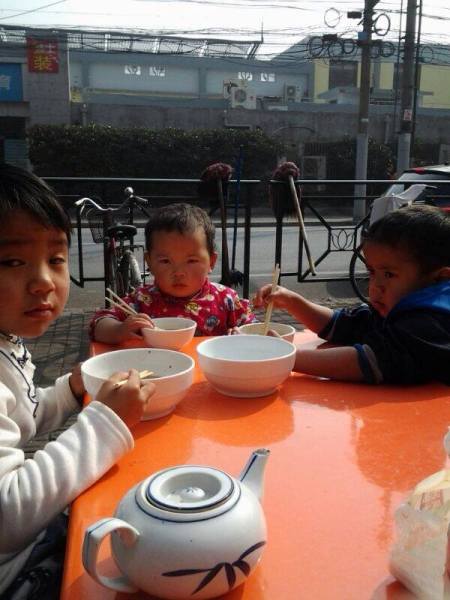Not a Newbie Anymore
 Well, the truth is that it’s still fun. The difference is that you begin to mature and become more self-sufficient the longer you live here. When I first got to China, I couldn’t do anything for myself and ended up having to rely almost completely on others. Everything from ordering food, to learning where to go and how to get even the simplest of chores (laundry, for example) needed to be done with the help of someone else. If I tried to do something on my own, I failed, and just ended up making myself look like an idiot. The first several weeks in China really are about adjusting. At work you will be learning how to do the job, and outside of work on your days off will be spent exploring your new hometown and maybe even venturing beyond. After all that has been accomplished however, you find that time passes really quickly and suddenly you are about halfway through your contract. Vacation days are fun because that is when you can take time for yourself to travel, but what goes on during a normal work week when you’re not working?
Well, the truth is that it’s still fun. The difference is that you begin to mature and become more self-sufficient the longer you live here. When I first got to China, I couldn’t do anything for myself and ended up having to rely almost completely on others. Everything from ordering food, to learning where to go and how to get even the simplest of chores (laundry, for example) needed to be done with the help of someone else. If I tried to do something on my own, I failed, and just ended up making myself look like an idiot. The first several weeks in China really are about adjusting. At work you will be learning how to do the job, and outside of work on your days off will be spent exploring your new hometown and maybe even venturing beyond. After all that has been accomplished however, you find that time passes really quickly and suddenly you are about halfway through your contract. Vacation days are fun because that is when you can take time for yourself to travel, but what goes on during a normal work week when you’re not working?
Weekend Routines
 My weekends have always been Mondays and Tuesdays. Two days off can seem like a long time and the thrill of taking weekend trips to Shanghai can seem really appealing. When I lived in Shaoxing, I occasionally went to Hangzhou for the day, but most of the time I spent my weekends alone in Shaoxing. Weekends are often the only days you have to rest and take care of other chores, such as laundry and grocery shopping. Depending on your motivation, this time can also be spent studying Chinese, whether its going out and speaking to people on the street, or if you’re like me, sitting in Starbucks and practicing writing out characters.
My weekends have always been Mondays and Tuesdays. Two days off can seem like a long time and the thrill of taking weekend trips to Shanghai can seem really appealing. When I lived in Shaoxing, I occasionally went to Hangzhou for the day, but most of the time I spent my weekends alone in Shaoxing. Weekends are often the only days you have to rest and take care of other chores, such as laundry and grocery shopping. Depending on your motivation, this time can also be spent studying Chinese, whether its going out and speaking to people on the street, or if you’re like me, sitting in Starbucks and practicing writing out characters.
Daily Meals
It’s super cheap to eat take out all the time. Chinese breakfast can be baozi, congee, various cakes or sweet breads while lunch and dinner is usually some combination of vegetable or meat dish fried together in a bunch of oils served with rice or noodles. I usually find myself eating the most Chinese food for lunch, since I prefer Western breakfasts (eggs, toast, cereal). It’s common for teachers to order food to the school if they don’t have time to bring their own lunch or go home (and most people don’t). I choose not to eat a diet soley of take out, so I like to cook up sandwiches (grilled cheese or blt), and will make pasta for dinner, since Italian noodles and sauces can be found in the supermarket and can be cooked up really easily and quickly.
Nightlife
 Nighttime is more fun; I personally prefer China at night. Buildings light up and it’s usually a pretty lively atmosphere. The night market is a popular destination for locals as it’s a good place to bargain and pick up some clothes or street food for pretty cheap. The bars are popular destinations too, mostly among foreigners but also for local Chinese men and some girls, and are of a varying quality depending on what city you’re in. Bars in smaller cities might be darker and smoky with bad live music, while the bigger cities have bars and clubs that are closer to Western standards. Nanjing’s 1912 district is a good example of this.
Nighttime is more fun; I personally prefer China at night. Buildings light up and it’s usually a pretty lively atmosphere. The night market is a popular destination for locals as it’s a good place to bargain and pick up some clothes or street food for pretty cheap. The bars are popular destinations too, mostly among foreigners but also for local Chinese men and some girls, and are of a varying quality depending on what city you’re in. Bars in smaller cities might be darker and smoky with bad live music, while the bigger cities have bars and clubs that are closer to Western standards. Nanjing’s 1912 district is a good example of this.
Staff Socials
You work together, you live together, you hang out on your time off together…your staff will become like your family in China. Often times there will be an occasion for a staff dinner, such as welcoming a new teacher to China or saying goodbye to one who is leaving. Birthday dinners, special events, and Christmas Day are also times for all school socials. Staff dinners can be held at a Chinese restaurant with a lazy sally and a table full of different Chinese dishes, or, if a smaller crowd, can be at a Japanese or Indian restaurant. If you live in a city that offers a bigger variety of Western food, you might cook up dinner at someone’s apartment. Mexican fajitas, tacos, and quesadilla can be a popular choice.
KTV
And then there is KTV. Everyone in China goes to KTV, and there are KTVs all over the country. It’s like a karaoke bar, but with a private room for your group of friends, snacks, and usually several cases of beer. The song selection includes both the Chinese hits (many love songs), as well as well-known Western songs, including both oldies and American or British top 40. If you come to China, you can count on at least one, but probably many visits to KTV.

















Leave A Comment